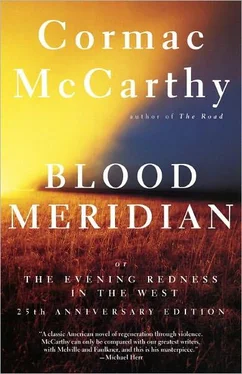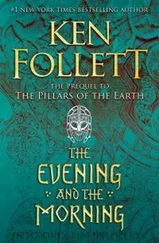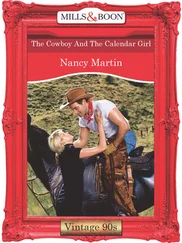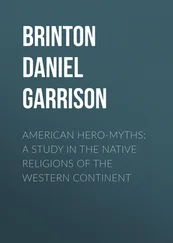Glanton sent a detachment of five men to follow and he and the judge and Bathcat turned back. They met the rest of the company riding up and they turned back and they went down and looted the bodies where they lay in the street like dead bandsmen and they smashed their muskets against the walls of the houses and broke their swords and lances. As they rode out they met the five scouts returning. The lancers had quit the trail and scattered through the woods. Two nights later camped on a butte looking out over the broad central plain they could see a point of light out on that desert like the reflection of a single star in a lake of utter blackness.
They took council. On that raw tablestone the flames of their balefire swirled and circled and they studied the arrant blackness under them where it fell away like the sheer cloven face of the world.
How far do you make them, said Glanton.
Holden shook his head. They’ve made half a day on us. They number no more than twelve, fourteen. They wont send men ahead.
How far are we from Chihuahua City?
Four days. Three. Where’s Davy?
Glanton turned. How far to Chihuahua, David?
Brown stood with his back to the fire. He nodded. If that’s them they could be there in three days.
You reckon we can overhaul them?
I dont know. Might depend on whether they figure us to be after them.
Glanton turned and spat into the fire. The judge raised one pale and naked arm and pursued something in the pit of it with his fingers. If we can be off of this mountain by daylight, he said, I believe we can overtake them. Otherwise we had better make for Sonora.
They may be from Sonora.
Then we’d better go get them.
We could take these scalps to Ures.
The fire swept along the ground, it rose again. We’d better go get them, said the judge.
They rode onto the plain at dawn as the judge had said and that night they could see the fire of the Mexicans reflected in the sky to the east beyond the curve of the earth. All the day following they rode and all that night, jerking and lurching like a deputation of spastics as they slept in their saddles. On the morning of the third day they could see the riders before them on the plain in silhouette against the sun and in the evening they could count their number struggling upon that desolate mineral waste. When the sun rose the walls of the city stood pale and thin in the rising light twenty miles to the east. They sat their horses. The lancers were strung out along the road several miles to the south of them. There was no reason for them to stop and no hope in it any more than there was in the riding but as they were riding they rode and the Americans put their horses forward once again.
For a while they rode almost parallel toward the gates of the city, the two parties bloody and ragged, the horses stumbling. Glanton called out to them to surrender but they rode on. He drew his rifle. They were shambling along the road like dumb things. He pulled up his horse and it stood with its legs spread and its flanks heaving and he leveled the rifle and fired.
They were for the most part no longer even armed. There were nine of them and they halted and turned and then they charged across that intermittent ground of rock and scrub and were shot down in the space of a minute.
The horses were caught and herded back to the road and the saddles and trappings cut away. The bodies of the dead were stripped and their uniforms and weapons burned along with the saddles and other gear and the Americans dug a pit in the road and buried them in a common grave, the naked bodies with their wounds like the victims of surgical experimentation lying in the pit gaping sightlessly at the desert sky as the dirt was pushed over them. They trampled the spot with their horses until it looked much like the road again and the smoking gunlocks and sabreblades and girthrings were dragged from the ashes of the fire and carried away and buried in a separate place and the riderless horses hazed off into the desert and in the evening the wind carried away the ashes and the wind blew in the night and fanned the last smoldering billets and drove forth the last fragile race of sparks fugitive as flintstrikings in the unanimous dark of the world.
They entered the city haggard and filthy and reeking with the blood of the citizenry for whose protection they had contracted. The scalps of the slain villagers were strung from the windows of the governor’s house and the partisans were paid out of the all but exhausted coffers and the Sociedad was disbanded and the bounty rescinded. Within a week of their quitting the city there would be a price of eight thousand pesos posted for Glanton’s head. They rode out on the north road as would parties bound for El Paso but before they were even quite out of sight of the city they had turned their tragic mounts to the west and they rode infatuate and half fond toward the red demise of that day, toward the evening lands and the distant pandemonium of the sun.
Mountain storms – Tierras quemadas, tierras despobladas – Jesús María – The inn – Shopkeepers – A bodega – The fiddler – The priest – Las Animas – The procession – Cazando las almas – Glanton takes a fit – Dogs for sale – The judge prestidigitant – The flag – A shootout – An exodus – The conducta – Blood and mercury – At the ford – Jackson restored – The jungle – An herbalist – The judge collects specimens – The point of view for his work as a scientist – Ures – The populace – Los pordioseros – A fandango – Pariah dogs – Glanton and judge.
All to the north the rain had dragged black tendrils down from the thunderclouds like tracings of lampblack fallen in a beaker and in the night they could hear the drum of rain miles away on the prairie. They ascended through a rocky pass and lightning shaped out the distant shivering mountains and lightning rang the stones about and tufts of blue fire clung to the horses like incandescent elementals that would not be driven off. Soft smelterlights advanced upon the metal of the harness, lights ran blue and liquid on the barrels of the guns. Mad jackhares started and checked in the blue glare and high among those clanging crags jokin roehawks crouched in their feathers or cracked a yellow eye at the thunder underfoot.
They rode for days through the rain and they rode through rain and hail and rain again. In that gray storm light they crossed a flooded plain with the footed shapes of the horses reflected in the water among clouds and mountains and the riders slumped forward and rightly skeptic of the shimmering cities on the distant shore of that sea whereon they trod miraculous. They climbed up through rolling grasslands where small birds shied away chittering down the wind and a buzzard labored up from among bones with wings that went whoop whoop whoop like a child’s toy swung on a string and in the long red sunset the sheets of water on the plain below them lay like tidepools of primal blood.
They passed through a highland meadow carpeted with wild-flowers, acres of golden groundsel and zinnia and deep purple gentian and wild vines of blue morninglory and a vast plain of varied small blooms reaching onward like a gingham print to the farthest serried rimlands blue with haze and the adamantine ranges rising out of nothing like the backs of seabeasts in a devonian dawn. It was raining again and they rode slouched under slickers hacked from greasy halfcured hides and so cowled in these primitive skins before the gray and driving rain they looked like wardens of some dim sect sent forth to proselytize among the very beasts of the land. The country before them lay clouded and dark. They rode through the long twilight and the sun set and no moon rose and to the west the mountains shuddered again and again in clattering frames and, burned to final darkness and the rain hissed in the blind night land. They went up through the foothills among pine trees and barren rock and they went up through juniper and spruce and the rare great aloes and the rising stalks of the yuccas with their pale blooms silent and unearthly among the evergreens.
Читать дальше












